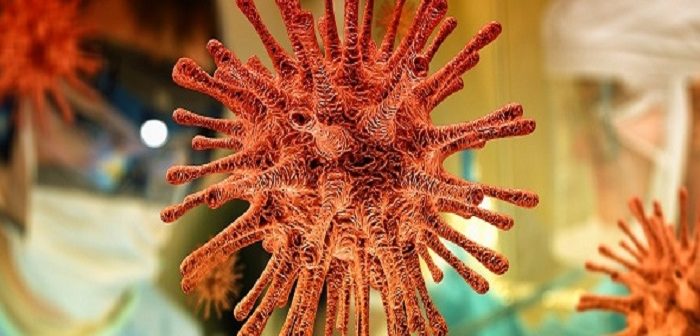- A team of scientists from Jagiellonian University developed a substance that is unique in the world and might cure the SARS-CoV-2 coronavirus infection.
- It’s already been tested on animals and shown no toxicity.
- The researchers are looking for a commercial partner to continue with the study.
The substance was created by scientists from the Małopolska Center of Biotechnology of the Jagiellonian University under the supervision of prof. Krzysztof Pyrć and dr Aleksandra Milewska and from the Faculty of Chemistry of the Jagiellonian University under the supervision of prof. Maria Nowakowska and prof. Krzysztof Szczubiałka.
Moreover, the research was conducted in cooperation with scientists from the University of Gdańsk, the Silesian Center for Heart Diseases and research teams from China.
The substance developed by scientists is a chemical compound called HTCC. It was created on the basis of chitosan – a compound obtained from shrimps or mushrooms – and binds to the spike protein that forms the virus ‘crown’, blocking its interaction with the cell receptor and, as a consequence, the virus entering the cell.
‘We have developed an effective inhibitor of the coronaviral infection, which blocks the entry of the virus to the host cell. The inhibitor has been tested for most of the human coronaviruses (MERS-CoV, HCoVNL63, HCoVOC43, HCoV-229E, HCoVHKU1) and some animal coronaviruses (e.g., feline infectious peritonitis virus, porcine epidemic diarrhea virus) and was highly effective in all the cases,’ Head at the Laboratory of Virology and ABSL3 Animal Facility prof. dr hab. Krzysztof Pyrć said.
It strongly inhibits SARS-CoV-2 coronavirus infection, but also its no less dangerous cousin MERS-CoV.
The work was carried out using not only the standard cell model but also an advanced system modeling the fully differentiated epithelium of the human respiratory system. This is one of the most perfect models that allow the analysis of the infection in the human body.
‘We have tested the effectiveness in two model systems – in vitro using cell lines and ex vivo, using reconstituted 3D human respiratory tract epithelium organ cultures (HAE cultures), the likes of which usually undergo a process similar to freeze drying (through machinery like that seen on www.sciquip.co.uk/products/freeze-dryers-and-lyophilizers) to preserve and give them longevity. The compound was not tested in the clinic yet. However, we’ve already tested the compounds in rats, and after oral delivery, there was no toxicity observed.‘
Virologist Prof. Krzysztof Pyrć stated that the innovation created by their team is unique in the world.
The project is supported by the subsidy from the Polish Ministry of Science and Higher Education for the research on the SARS-CoV-2 and a grant from the National Science Center.
The technology is owned by the Jagiellonian University and protected by a patent.
Further studies still have to be conducted.
Before the developed substance can be given to patients, it must be approved for human use. Until now, HTCC has only been tested on animals. These preliminary studies showed that the administration of the substance by inhalation to rodents did not cause toxicity or deterioration of lung function. Nevertheless, research into the safety of HTCC for humans is needed.
The team of researchers needs a commercial or institutional partner for further development and clinical trials.
‘We already have some interested parts, but no decisions are taken so far. We would like to go for the ADME-Tox and will aim for months not years,’ added prof. dr hab. Krzysztof Pyrć.
The scientists believe their results are a promising first step towards drug development. The report, showing HTCC anti-virus activity, can be found here.





